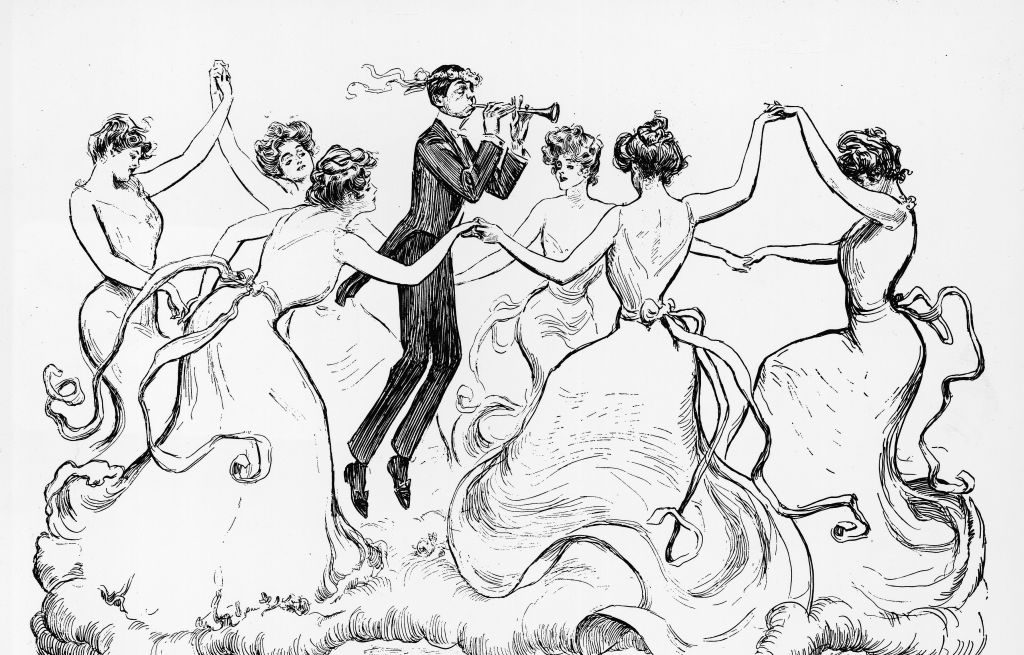Can the EU political establishment learn something from the späti, the late-night convenience store that is ubiquitous in the German capital?
Given that this is the Brussels Signal and readers come here for an alternative, thought-provoking take, you know what the answer is going to be. Of course the guardians of the European Vision can learn something to their — and, in turn, to our — betterment.
Named with a slang term deriving from Spätkauf (“late shop”), spätis are a legacy of former East German times, when late-opening shops were established in the German Democratic Republic to serve night-shift workers after they had clocked off from helping sustain the communist mission behind the Berlin Wall.
Nowadays you can find them on almost every block in central Berlin. Serving as a mixture of mini-supermarket and meeting place, spätis invariably have outdoor seating, often wobbly wooden tables and benches. Locals and tourists alike take their places — even in the cold of a winter’s night — after grabbing cheap bottles of beer from amply stocked fridges.
Each späti has its own personality that reflects the character and demographic makeup of the immediate local population. Like an outdoor version of the Central Perk coffeehouse in the sitcom Friends, you can feel the camaraderie in the air, the humanity. People are slapping backs, laughing, gossiping, arguing, hugging when a fellow regular arrives.
Providing cheap supplies absent Nanny State-type judgement on the likes of alcohol and cigarettes, and with a genuinely local touch, the späti modus operandi is not complicated or fancy. But it works. They serve as linchpins of the surrounding communities because they provide the essentials humans need: sustenance and fellowship, at a fair price.
But nowadays this sort of experience is far from assured in the West, depending on where on goes. I’ve learnt this the hard way after recently spending time in the US. If you want to socialise and share company with your fellow man here — as in, meet people in the public arena, go out for dinner with friends or family, go on a date — it is often very pricey.
Typically you end up leaving a bar or restaurant in the US feeling somewhat taken advantage of, with the overpriced spend then needling your mind when you consider all the other bills and debts due for rent, household expenses, groceries, credit card bills, etc. The same problem is occurring outside the US in cities like London, where the prohibitive expense of that most British pastime of sinking a few pints with your mates is becoming a source of national angst.
But in contrast, around the EU many member states are actually pretty good at maintaining the späti ethos. Based on my travels around Spain, Portugal and Italy, businesses, bars and restaurants are often family-run, cheap, and wedded to the surrounding community.
Spanish city streets are often particularly vibrant because eating and drinking out is so affordable, even for those with lower levels of income. It’s such a basic law of economics. Price it fairly, and they shall come and be merry—and there shall be a sense of community.

You walk away from paying your bill at the bar or restaurant in Spain thinking: That was fair, I got my money’s worth there. It is that old-fashioned business model whereby both sides — proprietor and customer — exit the exchange content with what it has provided to each side. It’s mutually beneficial, everyone gains, especially that sense of communal spirit (and which took such a hammering during Covid-19 lockdowns, and still hasn’t recovered in many places).
But EU institutions forget this, or are condescending toward it, introducing more and more policies that in effect are obsessed with social engineering and interfering with people’s ability to freely associate and choose how they interact and do business with one another.
The EU also often ends up making it hard for these types of small businesses and entrepreneurs to get started — and survive — with all the red tape and regulations that must be navigated, while focusing more on attracting international companies and corporations, at the expense of empowering small local businesses.
Poor Ireland is a perfect (terrible) example of this. Not only has it sold out to the tech business sector and NGO-industrial complex, it is home to probably the most lectured to and harangued populace in the EU (it’s noteworthy that Ireland suffered one of the strictest lockdown regimes during Covid-19, when its government gleefully noted just how far it could unexpectedly go, and how much interference/restrictions people would seemingly tolerate).
“It is no exaggeration to say that one cannot turn on the radio in Ireland without hearing an advert, paid for by a Government agency, warning the public about their behaviour,” Irish journalist John McGuirk writes in an article about the recent riots in Dublin and how tensions in Ireland were bound to boil over.
“Amongst other things, these adverts warn us, we eat too much meat. We also drink too much. Those of us who are young men, the adverts warn us, are insufficiently respectful of women. We drive too fast. We consume too much misinformation, and disinformation, especially on social media. We cause climate change. We use too much plastic. On, and on, it goes.”

As in Ireland, citizens all around Europe — thus including the UK, which is becoming one of the worst offenders, hot on the heels of Brave New Ireland — increasingly feel lectured at and interfered with by governments, authorities and supposed experts, as well as ripped off and hard up as a result.
It’s a terrible combination, especially if the model of liberal democracy is to remain in ruddy health.
“No people in a precarious economic condition has a fair chance of being able to govern itself democratically,” Aldous Huxley wrote in Brave New World Revisited, his 1958 examination of the prophecies made in his 1932 dystopian novel about a scientific dictatorship manipulating a supine population.
“Liberalism flourishes in an atmosphere of prosperity and declines as declining prosperity makes it necessary for the government to intervene ever more frequently and drastically in the affairs of its subjects.”
At which point, economics also meet human psychology and our moral capacity—cue a hardening of hearts as financial woes take their toll.
“So long as your standard of living is rising, you can watch and listen to the world’s concerns with a degree of equanimity,” Douglas Murray notes in an article for The Spectator about the UK government’s abject handling of the economy. “But the moment that the opposite happens and you feel yourself on the financial slide, then — as some of you will also know — gosh can we get nasty.”
But it doesn’t have to get nasty. The solutions — or at least mitigating counter measures — can often be surprisingly simple. As the bonhomie at a Berlin späti on a Friday afternoon shows.
There is a primordial need for that manner of living and social flow, along with the human connections that go with it, a yearning that only increases with each new app or technological “advance”, or each new bizarre piece of governmental guidance and “advice”, that takes us farther and farther away from each other.
The EU’s political arbiters need to better bear that in mind. Keep it simple, stupid, as the saying goes.






Could the tide be turning in favour of Europe’s Judeo-Christian tradition – thanks to the insanity finally being called out?